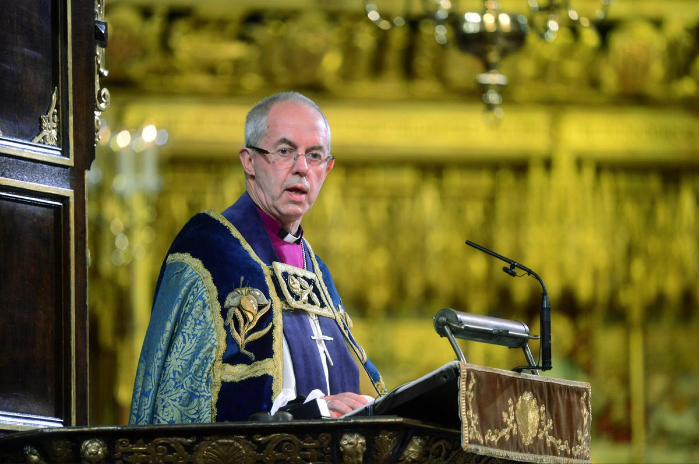'Will to power' behind Sri Lanka church bombings, says Archbishop of Canterbury

The Archbishop of Canterbury has said the horrific attacks on three churches in Sri Lanka on Easter Sunday are a symptom of the "will to power".
The Most Rev Justin Welby said in his Easter Sunday sermon that lies and "a pride that demeans others" were stoking hatred and violence.
He said this could be seen in some of the responses to the Notre-Dame Cathedral fire last week and the treatment of Muslims targeted in the Christchurch attacks.
Closer to home, he said politicians were being "unjustly vilified" in the face of divisions over Brexit.
"Such are the age-old ways of gaining and guarding power. They treat proper difference and diversity, such as we are seeing with our hard pressed and unjustly vilified political leaders, as threats," he said.
The Archbishop said the desire for power could be seen in the attacks on the Sri Lankan churches that were carried out as worshippers gathered to celebrate Easter Sunday.
"Pride denies our need of God and says we are sufficient to ourselves, that the will to power is indeed our vocation," he said.
"The will to power leads to the murder of innocents in Sri Lanka, the utterly despicable destruction that, on this holiest of days, seeks to challenge the reality of the risen Christ, to say that darkness will conquer, that our choice is surrender or death."
The Archbishop said he had spoken to the Bishop of Colombo, the Rt Rev Dhiloraj Canagasabey, in the aftermath of the attacks to express his condolences and assure him of his prayers.
He shared some of his conversation with the bishop: "Bishop Dhiloraj had been in the midst of his Easter Eucharist; he was just beginning the Prayer of Consecration when the police arrived and said, 'You must come with us, they are about to come and kill you.'
"He refused to move until he had finished the Prayer of Consecration in his packed cathedral, and I quote his exact words to me: 'If God gives me permission to live, I shall live. If he gives me permission to die, I shall die.'"
The Archbishop went on to say that the light of the resurrected Lord was the answer "wherever materialism, inequality, war, tyranny or cruelty have taken hold and enslave the human spirit".
He concluded by appealing to Christians to put their hope in the resurrection to get them through uncertainty and be witnesses of this hope to others.
"The Church witnesses through its response to disaster and setback. Notre Dame will rise from the ashes, as did Rheims, as did Coventry, and the Cathedral ruined and rebuilt will testify ever more clearly to seeing the resurrected Jesus," he said.
"Such is the potential of witness, of making seen in the present the picture that Isaiah painted which became achievable through the resurrection.
"In our country we will see our future through forgiveness, reconciliation, hope and overcoming these stories of fear and betrayal.
"But Christians must show how to live resurrection life; that the rest of the world may see above all in forgiving one another and loving one another, making visible what is unseen;but witness begins with the individual meeting the risen Christ."











